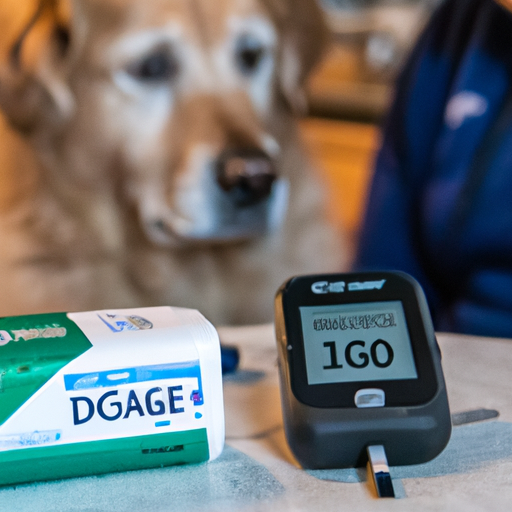As a caregiver for your furry friend, you should always be on the lookout for signs of ill-health. One condition that can affect dogs, particularly smaller breeds and puppies, is hypoglycemia. Let’s delve into the details.
Understanding Hypoglycemia
Hypoglycemia, or low blood sugar, is a condition that can occur in dogs when their blood sugar levels drop below the normal range. It’s like a car running out of fuel. Your dog’s body needs glucose (sugar) for energy, and without enough of it, they may start to show symptoms of hypoglycemia.
Recognizing the Symptoms
The symptoms of hypoglycemia in dogs can vary from subtle to severe. Here are some signs you should watch out for:
- Lethargy or fatigue
- Shaking or tremors
- Loss of appetite
- Weakness or unsteady gait
- Seizures
If you observe these symptoms in your dog, it’s essential to contact your vet right away. These symptoms could be indicative of other conditions as well, so proper diagnosis is necessary.
Causes of Hypoglycemia in Dogs
There are various causes of hypoglycemia in dogs. Some of the most common ones are:
- Insufficient food intake: This is particularly common in small breed puppies who have high energy needs but small stomachs.
- Overexertion: Too much exercise without enough food can lead to low blood sugar.
- Illness or disease: Conditions like pancreatitis, liver disease, or Addison’s disease can cause hypoglycemia.
- Insulin overdose: If your dog has diabetes and receives too much insulin, it can result in hypoglycemia.
Treatment and Prevention
Here are some steps you can take to treat and prevent hypoglycemia in your dog:
- Regular feeding schedule: Ensure your dog has regular meals, especially if they are a small breed or a puppy.
- Balanced diet: A diet rich in proteins and complex carbohydrates can help maintain steady blood sugar levels.
- Regular vet check-ups: Regular vet visits can help catch any underlying diseases that might lead to hypoglycemia.
| Prevention Measures | Importance |
|---|---|
| Regular Feeding | Maintains blood sugar level |
| Balanced Diet | Provides necessary nutrients |
| Vet Check-ups | Detects potential diseases |
Frequently Asked Questions
Q: Can hypoglycemia in dogs be fatal?
A: While mild hypoglycemia may only cause temporary discomfort, severe cases can lead to seizures, coma, and in rare cases, death. Immediate veterinary care is crucial.
Q: Can hypoglycemia be cured?
A: Treatment depends on the underlying cause. In many cases, managing the condition requires long-term care and monitoring.
Q: How can I check my dog’s blood sugar at home?
A: Home glucose monitors are available, but it’s important to discuss this with your vet first.
Remember, as a caregiver, you play a vital role in your dog’s health. Stay vigilant, provide them with the care they need, and you’ll have a happy and healthy companion by your side.



